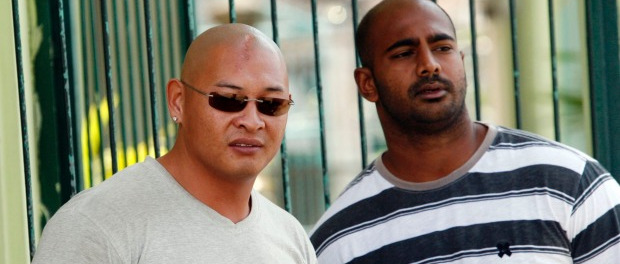I heard a rumour that Indonesians living in Australia are being told not to speak in their language for a few weeks should the executions of Myuran Sukumaran and Andrew Chan occur. Unfortunately, as each day passes, it appears that the Bali duo’s long march to death is reaching its inevitable final stage.
As pointless, and as brutal as the nature of the executions are, Australians should not reserve their anger for Indonesians. The case of Myuran Sukurmaran and Andrew Chan is the product of our collective fault. Their story presents an insight into the shortcomings of the human condition.
First of all, they are at fault. As has been pointed out ad nauseam by those with little sympathy, Chan and Sukurmaran chose a life path that led them to their current predicament. Their foolish decision to run a drug ring that would attempt to smuggle heroin into Australia was laden with risks of which they were well aware. They took those risks. Their decision, made through what can only be assumed as a deadly recipe of greed and foolishness, has seen them staring into death’s haunting eyes for a decade.
Without doubt, they are first and foremost to blame. Yet consider the reality on the periphery. Without a market for heroin in Australia, Chan and Sukurmaran’s mission would be non-existent. If a significant sector of our population did not require the deceptive short fix to life’s anxieties that is drugs, then there would be no profit seekers wishing to exploit that reality. A deeper issue, one that will live on far beyond Chan and Sukurmaran, is the terrible truth that so many young Australians find solace in substance abuse. What is it about our society that has led to this truth? As recent reports of an ice epidemic in Melbourne’s western suburbs testify, we are losing this battle. As a community, we are failing. For the individuals resorting to such a path, they have lost.
There’s more. What of the harsh truth that our political class will only act if there’s the belief that action will bear political fruit? The Bali duo have been on death row for ten years, over the course of four prime ministerships, and only now are we talking about prisoner swaps and high stakes representations to consular officials. If they were so concerned, successive governments had ten years to consider strategies and proposals that might have shifted the current course of events. Alas, it was only during the final stages, when the cruel reality of death by firing squad began to present in Australians’ minds, that our political class saw cause to act in any serious way. Too late.
Of course, Indonesia’s role in this sad chapter is also regretful. It’s a blight on humanity that we still have state sanctioned killing in a number of countries around the world, but it’s particularly shameful when it’s being used for political expediency. Joko Widodo, the newly elected Indonesian president, could not possibly grant clemency to any drug smugglers, Australians or otherwise, for fear that he will be labelled as weak. After campaigning on a tough-on-drugs platform, any show of mercy will be considered a humiliating backdown. Sadly, the use of people’s lives as a political football is not isolated to Indonesia. It’s a damning reality that politicians in Liberal Democracies perceived as tough on ‘the other’ are generally popular. Perhaps that tells us something about ourselves as humans. We always perceive an external threat, and find comfort in the leader who will protect us from it.
Closer to home, a sinister sentiment has revealed itself with those declaring that Sukumaran and Chan had it coming. Interestingly, these views come from regular, law abiding people who would not personally inflict harm on others. It’s coming from people who would normally cringe at the thought of a fellow person being riddled with bullets. It spawns from a removed reality. The Bali duo represent a concept, drugs, and therefore they have been dehumanised by keyboard warriors tapping away with a call for blood. It reveals a particular weakness in ourselves that if we are not personally involved in a situation, our default response is to side with the callous side of human nature rather than the merciful.
When news of the fatal bullets hit our airwaves, a groundswell of anger will be directed at Indonesia for such a meaningless, futile act of barbarism. Yet the conditions that led to this moment have been and will be around for a long time. They are universal, and not just isolated to Indonesia. We are flawed beings. When we ask the hard questions of Indonesia, as if they are the only people at fault, we should also ask the hard questions of ourselves.





